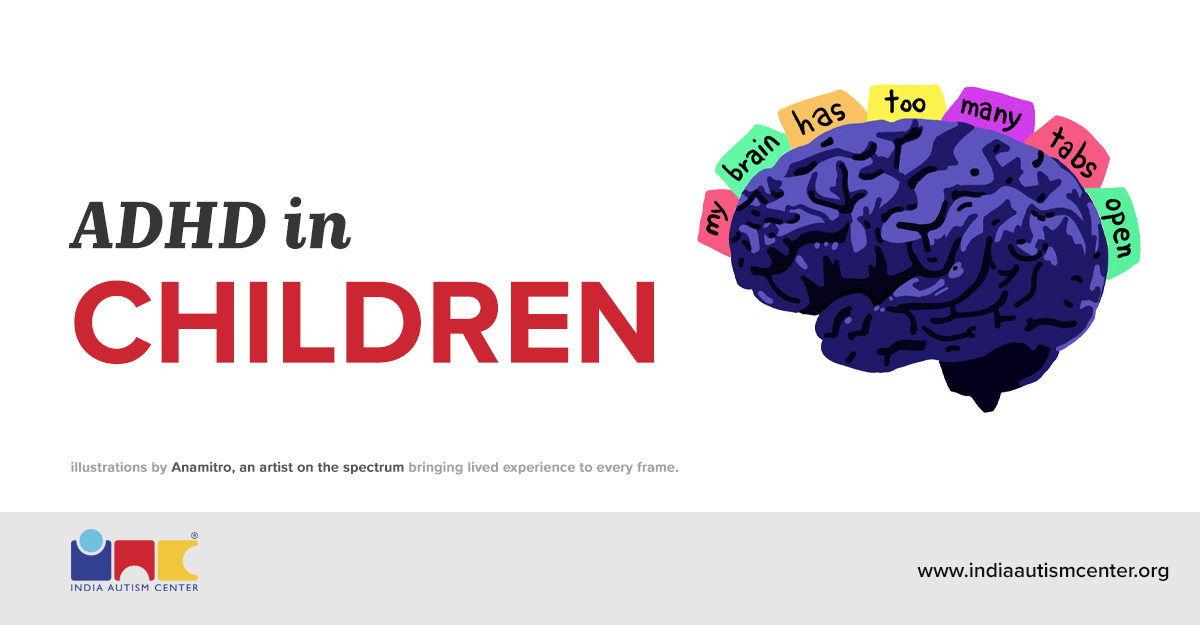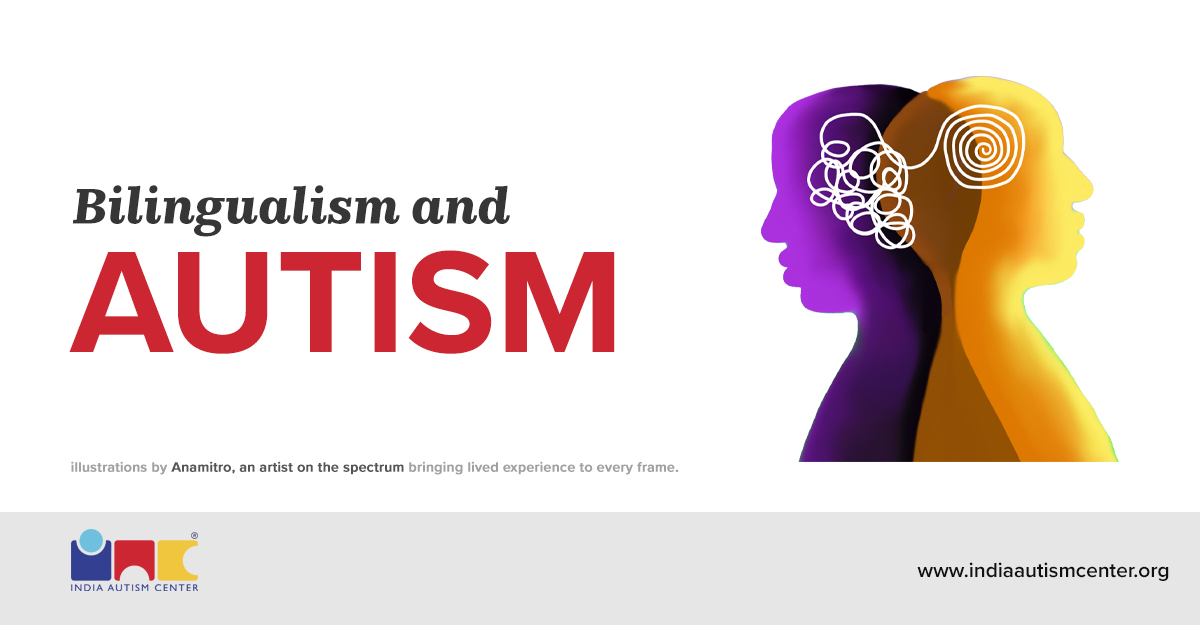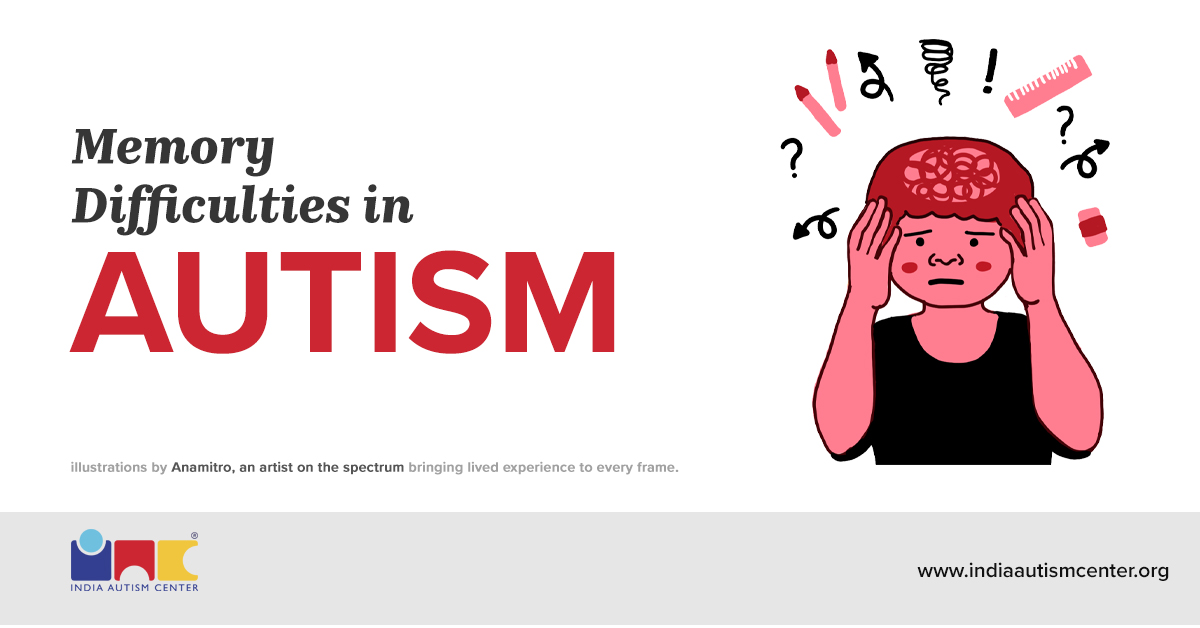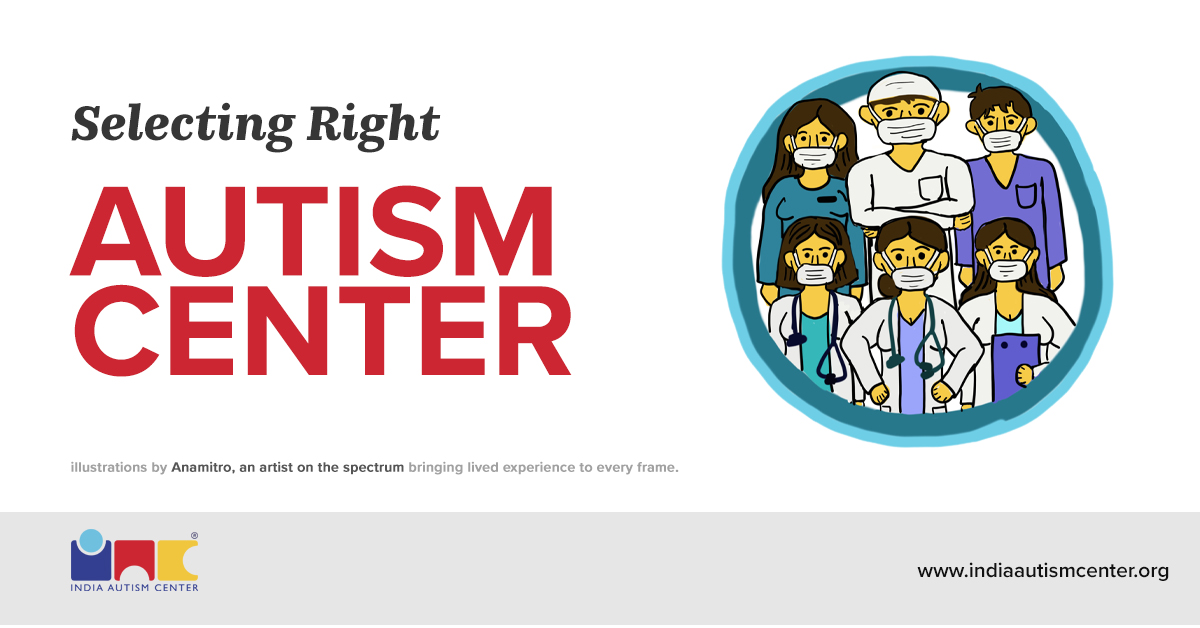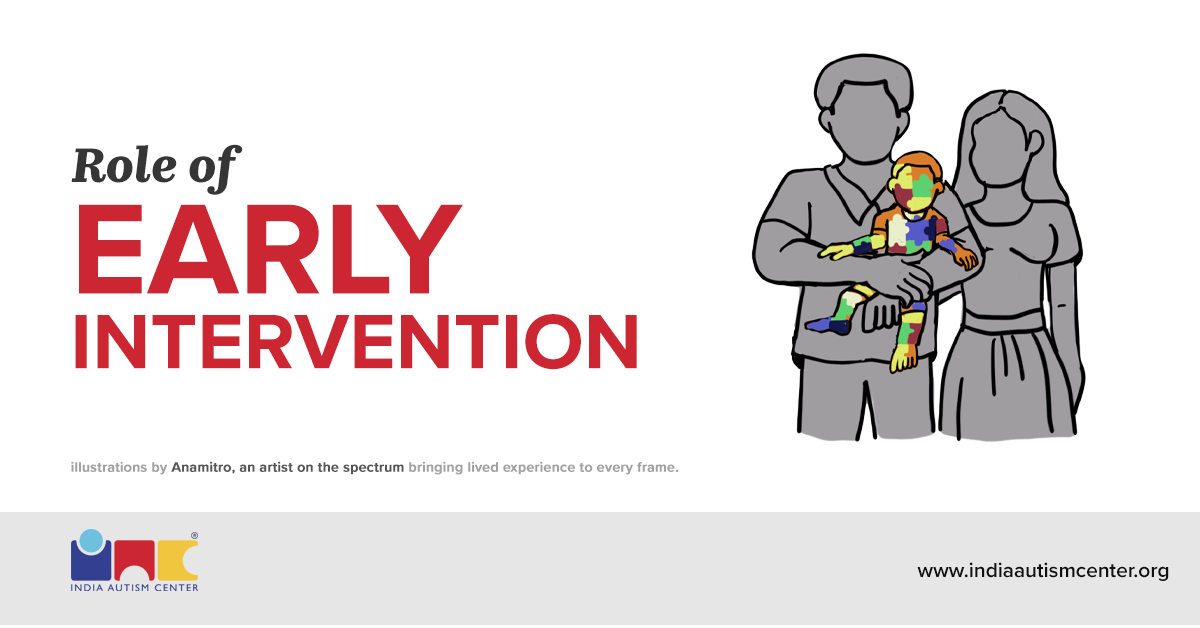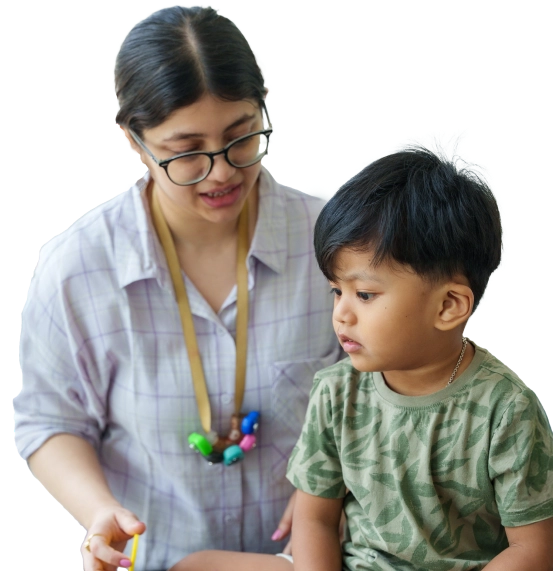Many parents feel confused and worried when they first hear about Attention Deficit Hyperactivity Disorder (ADHD) in children. I want you to know this first: you are not alone, and your child is not broken.
In this guide, I will help you understand adhd in children, its symptoms, causes, and diagnosis in a clear and practical way.
What Is ADHD in Children?
ADHD is a neurodevelopmental condition. This means it affects how a child’s brain grows and works.
Children with ADHD usually struggle with:
- Paying attention
- Controlling impulses
- Sitting still or regulating activity levels
However, ADHD looks different in every child. Some children are mostly inattentive. Others are hyperactive. Many show a mix of both.
In India, awareness about adhd in children is growing, but many families still mistake ADHD for laziness or bad behaviour. This misunderstanding delays diagnosis and support.
An important note: Many people often get confused between autism and ADHD, but there are differences. If you want to learn more about it in detail, check our article on ADHD or Autism, how do you know?
Why Understanding ADHD in Children Matters
When ADHD is not recognised early, a child may:
- Fall behind in school
- Develop low self-esteem
- Feel rejected by peers
- Show emotional distress
But when you understand ADHD, you can:
- Respond with patience instead of punishment
- Provide structured support
- Seek professional assessment
- Improve your child’s learning and confidence
Want to know more? Get in touch with us.
ADHD Symptoms in Children
Let us now explore adhd symptoms in children. These symptoms usually appear before the age of 12 and last for at least six months.
Common Signs of ADHD in Children
Some typical signs of ADHD in children include:
- Difficulty paying attention to tasks
- Making careless mistakes in schoolwork
- Forgetting instructions easily
- Constantly moving or fidgeting
- Talking excessively
- Interrupting others
- Acting without thinking
- Struggling to wait for their turn
- Losing things like pencils or books
You may notice these behaviours at home, school, or both.
Types of ADHD in Children
Understanding the type of ADHD helps guide intervention.
1. Inattentive Type
Children may:
- Seems dreamy or distracted
- Avoid tasks that need focus
- Miss details
- Appear not to listen
This type often goes unnoticed because the child is not disruptive.
2. Hyperactive-Impulsive Type
Children may:
- Run or climb constantly
- Speak out of turn
- Have trouble sitting
- Act without thinking
3. Combined Type
This includes both inattentive and hyperactive traits. It is the most common form of ADHD in children.
Is Anxiety a Core Symptom of ADHD in Children?
Many parents ask: Is anxiety a core symptom of ADHD in children?
The answer is no. Anxiety is not a core symptom of ADHD. However, anxiety often occurs alongside ADHD.
A child with ADHD may:
- Feel anxious about school failure
- Worry about being scolded
- Struggle socially
- Develop stress from constant correction
So while anxiety is not ADHD itself, it frequently overlaps. This makes proper diagnosis even more important.
Want to know more? Get in touch with us.
ADHD and Children in India: A Growing Concern
In recent years, awareness about ADHD and children in India has increased. Yet many children remain undiagnosed due to:
- Stigma
- Lack of trained professionals
- Confusion with discipline issues
- Limited school screening
In India, children with ADHD are often labelled as “naughty” or “lazy.” This delays support and damages self-worth.
This is where centres like India Autism Center (IAC) make a difference by promoting early identification and family education.
Diagnosing ADHD in Children: The Diagnostic Process
Diagnosing ADHD in children involves a comprehensive evaluation by healthcare professionals, including paediatricians, psychologists, or psychiatrists. The diagnostic process typically includes the following steps:
Medical History
Gathering information about the child’s developmental history, including behavioural patterns, academic performance, and family medical history, is crucial for accurate diagnosis. Parents and caregivers may provide valuable insights into the child’s behaviour and functioning.
Behavioural Assessment
Parents, caregivers, and teachers may be asked to complete standardised questionnaires to assess the child’s behaviour and symptoms across different settings. These assessments help identify patterns of inattention, hyperactivity, and impulsivity.
Physical Examination
A thorough physical examination helps rule out other medical conditions that may mimic ADHD symptoms. The healthcare provider may also assess neurological function and screen for vision or hearing impairments.
Psychological Testing
Psychological assessments, such as intelligence testing and neuropsychological evaluations, can provide further insights into the child’s cognitive functioning and behavioural patterns. These tests help differentiate ADHD from other developmental disorders and learning disabilities.
Diagnostic Criteria
Diagnosis of ADHD is based on specific criteria outlined in the Diagnostic and Statistical Manual of Mental Disorders (DSM-5). The DSM-5 criteria include symptoms of inattention, hyperactivity, and impulsivity that are present for at least six months and significantly impair the child’s functioning in multiple settings.
Obtaining an accurate diagnosis is essential for developing an individualised treatment plan and providing appropriate support and intervention for children with ADHD.
Causes of ADHD in Children: Understanding the Factors
The exact cause of ADHD is still not fully understood, but a combination of genetic, environmental, and neurobiological factors is believed to contribute to its development. Some potential ADHD symptoms in children include:
Genetics
ADHD tends to run in families, suggesting a genetic component to the disorder. Children with a family history of ADHD are at a higher risk of developing the condition themselves. Studies have identified several genes associated with ADHD, although the interplay between genetic factors and environmental influences is complex.
Brain Chemistry and Structure
Differences in brain chemistry and structure, particularly in areas responsible for attention, impulse control, and executive functions, have been observed in children with ADHD. Neuroimaging studies have revealed abnormalities in the prefrontal cortex, basal ganglia, and other brain regions implicated in ADHD.
Prenatal and Early Childhood Exposures
Exposure to environmental factors during pregnancy, such as maternal smoking, alcohol consumption, or exposure to toxins, may increase the risk of ADHD. Additionally, complications during birth or early childhood trauma may also play a role.
Diet and Nutrition
While controversial, some studies suggest that certain dietary factors, such as artificial food additives, sugar, and insufficient intake of essential nutrients like omega-3 fatty acids, may influence ADHD symptoms in some children.
Want to know more? Get in touch with us.
Teeth Grinding and ADHD: What Parents Should Know
Many parents worry about nighttime habits and ask: how to stop teeth grinding in ADHD children?
Teeth grinding, also known as bruxism, is common in children with ADHD. It may happen due to:
- Stress
- Anxiety
- Sensory sensitivity
- Sleep disturbances
How to Stop Teeth Grinding in ADHD Children
Here are practical steps:
- Maintain a calming bedtime routine
- Reduce screen time before sleep
- Encourage relaxation exercises
- Consult a dentist for mouth guards
- Address emotional stress
Managing ADHD symptoms often reduces teeth grinding naturally.
How India Autism Center Supports Children with ADHD
At IAC, we believe every child deserves understanding and structured support. Although IAC is known for autism services, it also contributes significantly to awareness and care for children with developmental challenges, including ADHD.
Role of IAC in ADHD Support
IAC makes support possible by:
- Promoting early screening
- Training educators and caregivers
- Offering therapy-based interventions
- Creating structured learning environments
- Supporting family education
- Encouraging inclusive education
Through its integrated model, IAC helps families understand ADHD in children and respond with evidence-based care rather than fear.
Conclusion
In conclusion, ADHD is a common neurodevelopmental disorder that affects children’s behaviour, attention, and self-control. Recognising the symptoms of ADHD in kids and understanding the diagnostic process are crucial steps in providing appropriate support and intervention. While the exact causes of ADHD are still not fully understood, research suggests a combination of genetic, environmental, and neurobiological factors.
By raising awareness, promoting early detection, and implementing evidence-based interventions, we can better support children with ADHD in reaching their full potential and improving their quality of life.
Collaborative efforts between healthcare professionals, educators, parents, and caregivers are crucial in providing comprehensive care and support for children with ADHD. With proper diagnosis and intervention, children with ADHD can thrive and succeed in various aspects of their lives.
Frequently Asked Questions (FAQs)
What are the most common ADHD symptoms in children?
The most common adhd symptoms in children include difficulty paying attention, frequent forgetfulness, impulsive behaviour, excessive talking, and constant movement. Some children mainly struggle with focus, while others show hyperactivity and impulsivity. These signs of adhd in children usually appear before the age of 12 and affect school and home life.
What causes ADHD in children?
Many parents ask, what causes adhd in children? ADHD is mainly caused by genetic and neurological factors. The brain develops differently in children with ADHD, especially in areas responsible for attention and self-control. Prenatal factors such as stress, low birth weight, and premature birth may also increase risk. Poor parenting does not cause ADHD.
Is anxiety a core symptom of ADHD in children?
No, anxiety is a core symptom of ADHD in children is a common question, and the answer is no. Anxiety is not a core symptom of ADHD. However, many children with ADHD also experience anxiety due to academic pressure, social difficulties, and repeated negative feedback. Both conditions can exist together and should be assessed properly.
How can parents manage ADHD in children in India?
Managing ADHD and children in India requires early diagnosis, structured routines, school support, and therapy-based intervention. Parents should work closely with trained professionals and educators. Centres like India Autism Center (IAC) support families by promoting early screening, caregiver education, and child-focused interventions that help children with ADHD improve attention, behaviour, and emotional regulation.
For expert insights, support services, and inclusive learning initiatives, visit the India Autism Centre.

